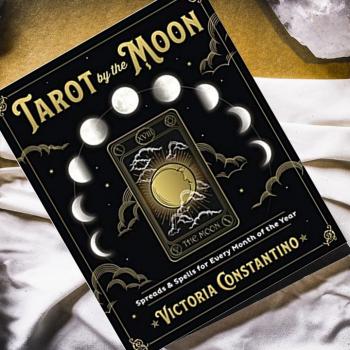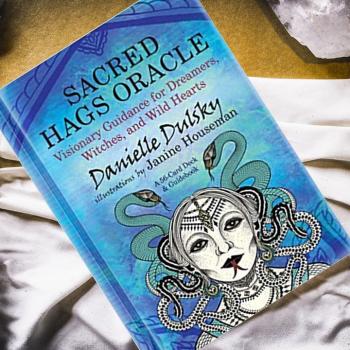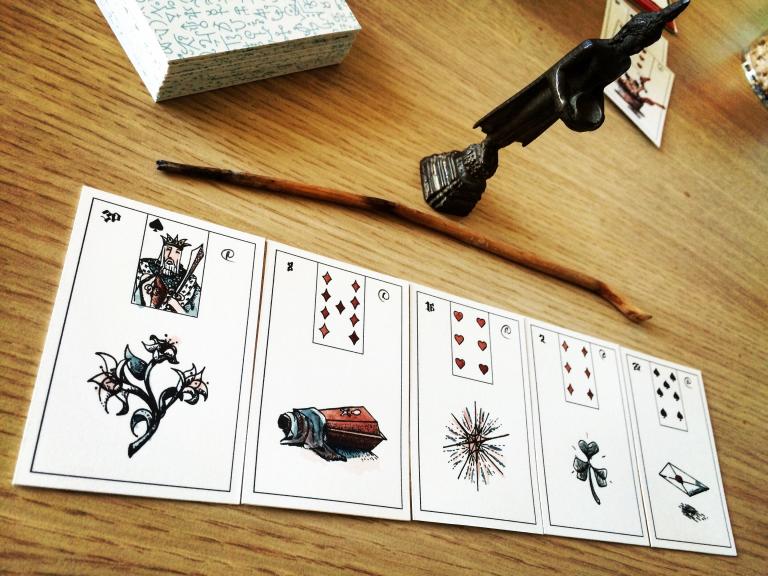
In my work with the cards I get to see a lot of regret: Regret that this relationship didn’t go anywhere, regret that the dream job wasn’t scored, regret that one’s relationship with teenage kids is lousy.
But what I observe beyond this regret is a desire for forgiveness. The bottom line is that people want to be forgiven or offer forgiveness for what they perceive as failure (theirs and others).
But what if there’s nothing to forgive?
This whole business of forgiveness is a cultural thing that insists on keeping you hooked to the past: ‘Such and such was done unto me, and I cannot forgive it.’ Or, ‘I’ve done such and such, and I cannot be forgiven’. Or, ‘I’ve done such and such, and I cannot forgive myself.’
I sigh, shuffles the cards, and say to myself, ‘such a waste of time,’ upon hearing the insistence that ‘I must’ (ask for forgiveness or grant forgiveness).
The main religions have benefitted well from the business of forgiveness. But how useful is this business for the individual at the individual level?
Most who follow me here know that I’m elsewhere inclined than towards what religion can do for me.
I live according to a weird form of Tantric principle that situates itself somewhere between Tibetan Buddhism (the Kagyu school), and Zen and Dzogchen splashed with a dash of Shaivism.
This means 1) that I don’t hold any beliefs whatsoever, and that 2) that I don’t regard forgiveness as possible.
If you stand your ground in the present moment – which, by the way, is a very irritating attitude where all things culture are concerned – then there’s no way you can experience forgiveness whether you’re at the giving or receiving end.
When you’re not hooked to the past, what is there to forgive?
The ‘now’ does not acknowledge the presence of intangible thought. Let alone, the idea of ‘I must forgive (myself and others) because it feels good afterwards.’
There is no such thing. If you hold your ground in the now, there’s no causality open to accommodating forgiveness or resentment.
Be that as it may. People want to ‘feel good’, so how might we address this desire in a consultation with the cards?
Here’s what I do as a matter or regular practice: I make the inconcrete concrete.
In fact I never do anything else when I read the cards but this:
- Materialize the immaterial: ‘How can I be happy?’ ‘Like this.’
- Concretize doubt: ‘Does he love me?’ ‘No’.
- Make the unconscious conscious: ‘How can I know my heart’s desire as I vacillate between selling crystals and gambling at the stock market?’ ‘By acknowledging that the ludic is transcendental for you, relishing in risking the heart’s own radiance.’
This latter example may well sound very oracular, but the statement about risk is one that people can know very well in their hearts. Hence it has a concrete edge that lands the answer about a vacillating heart in motivation. And if you know your motivation, it goes without saying that you know how to act.
If your motivation is not aligned with your action you’re screwed.
In light of such commonsensical principles, let us then go back to the business of forgiveness and ask the cards this question:
What is the most concrete manifestation of the intangible idea of forgiveness (if we insist that it must take place) so that forgivness won’t function as a mere hook to the past?
Let’s use the Lenormand cards for this, especially as rumor has it that these cards are not suited for ‘wisdom questions’.
I laid down 5 cards in mirror positions, going from the center to the left, right, and then left and right again.
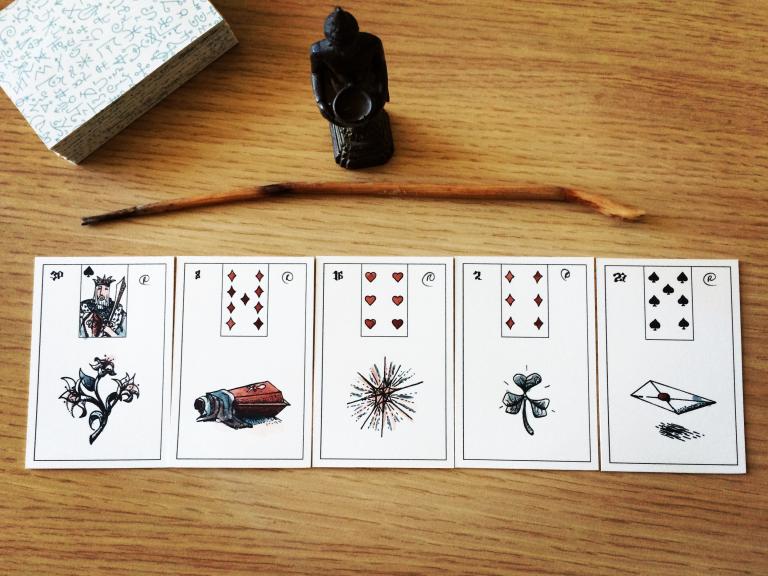
The string is this, in these positions: 4, 2, 1, 3, 5.
Lily, Coffin, Star, Clover, Letter
Well, now very nice of the cards to be ever so concrete and actually nod at my weird Tantric continuum:
When forgiveness (Star) is not a hook to cultivating (Lily) a dead past (Coffin), it acts as awareness of the instant (Clover) and fleeting (Letter) moment.
So the concrete manifestation of forgiveness is to ‘know’ that, to know about impermanence in relation to relative truth; get that memo (Lily + Letter).
Put differently, we can say that the elegance (Lily) of taking the high road to putting shit to rest (Coffin + Star) is the best bit of luck you can send your own way (Clover + Letter).
So the concrete manifestation of forgiveness is given in your own attitude: you simply forget about forgiving (Coffin + Star).
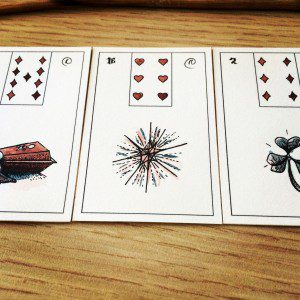
In other words, what the Star says is that forgiveness is only possible when you know that it has no effect whatsoever beyond its hooking function to the past.
The past is dead and buried. Whether you still have an opinion about it or not, is completely besides the point, besides your act of living in the now, which you do by default.
Acknowledge that, and see how much you still need forgiveness.
Thus we we know what not to waste our times with.
Hop on board my Lenormand Class if you want to learn more about what exactly you can do with these cards, from predicting fortunes to forecasting position. Registration is now open.









